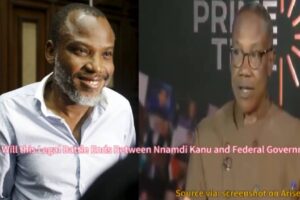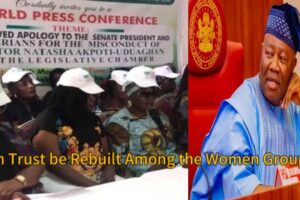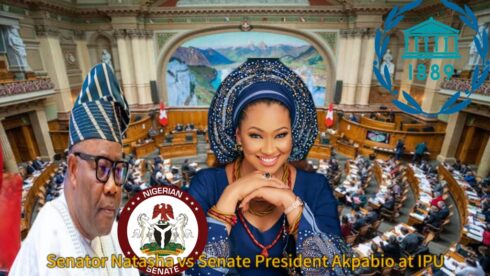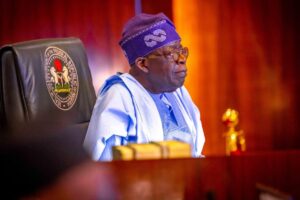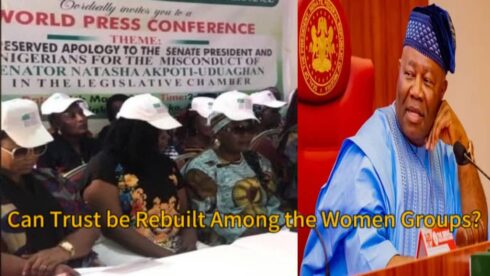Former Governor Ibikunle Amosun of Ogun State has made a startling admission regarding the handover of a free trade facility to Chinese investors. In a personally signed statement released on Saturday, Amosun confessed to being deceived into transferring control of the Ogun-Guandong Free Trade Zone to a Chinese investment group in 2012. This revelation adds a troubling dimension to an ongoing legal battle that now threatens Nigeria’s overseas assets.
The admission by Ibikunle Amosun, who governed Ogun State from 2011 to 2019, highlights a significant lapse in due diligence. He acknowledged that he failed to conduct even a basic assessment of the facts before authorizing the Chinese team to take over the free trade zone. This decision has since spiraled into a complex legal crisis, with far-reaching consequences for Nigeria’s international economic relations.
Origins of the Ogun-Guandong Free Trade Zone
The Ogun-Guandong Free Trade Zone was initially conceived in 2007 as a collaborative project between Ogun State, under then-Governor Gbenga Daniel, and Guangdong Xinguang International China Africa Investment Ltd (China Africa). The primary objective was to facilitate seamless trade between Nigeria and China, with the zone strategically located in Igbesa, Ogun State.
This initiative was part of a broader strategy to boost foreign direct investment in Nigeria and strengthen economic ties with China, one of the world’s largest economies. The free trade zone was designed to offer various incentives to businesses, including tax breaks and streamlined customs procedures, to encourage international trade and local economic development.
The Handover and Its Immediate Consequences
Ibikunle Amosun’s decision to hand over the free trade facility to the Chinese investment group in 2012 marked a critical turning point. This move, now revealed to have been based on incomplete or misleading information, set in motion a chain of events that would eventually lead to significant legal and diplomatic challenges for Nigeria.
The immediate aftermath of the handover saw changes in the management and operation of the free trade zone. While the full details of the agreement and the nature of the deception claimed by Ibikunle Amosun remain unclear, it is evident that this decision had far-reaching implications beyond the borders of Ogun State.
Escalation to International Legal Battle
The controversy surrounding the Ogun-Guandong Free Trade Zone has since escalated into an international legal dispute. Aggrieved Chinese investors, citing issues with the handover and subsequent management of the zone, have taken legal action against Nigeria in international courts.
This legal battle has recently taken a concerning turn, with the investors targeting Nigeria’s assets in Europe and the United States. The potential seizure or freezing of these assets poses a significant threat to Nigeria’s international economic interests and could have far-reaching consequences for the country’s diplomatic relations.
Implications for Nigeria’s Foreign Assets and Investments
The ongoing legal crisis stemming from the Ogun-Guandong Free Trade Zone dispute has put Nigeria’s foreign assets at risk. The targeting of these assets by the Chinese investors represents a serious challenge to Nigeria’s economic stability and international standing.
This situation raises critical questions about the protection of national assets abroad and the potential ripple effects on foreign investment in Nigeria. It also highlights the need for more robust due diligence processes in international business agreements, especially those involving state assets and foreign investors.
Ibikunle Amosun: Lessons and Future Considerations
Ibikunle Amosun’s admission serves as a stark reminder of the importance of thorough vetting and careful consideration in international business dealings, particularly those involving state resources. The fallout from this situation underscores the need for transparent, well-informed decision-making processes in government, especially when dealing with foreign investments and partnerships.
Moving forward, this incident may prompt a reevaluation of Nigeria’s approach to international trade agreements and the management of free trade zones. It also highlights the critical need for continuity and proper handover procedures in governance, ensuring that incoming administrations are fully briefed on the intricacies and potential pitfalls of existing international agreements.
Table of Contents
Discover more from OGM News NG
Subscribe to get the latest posts sent to your email.



